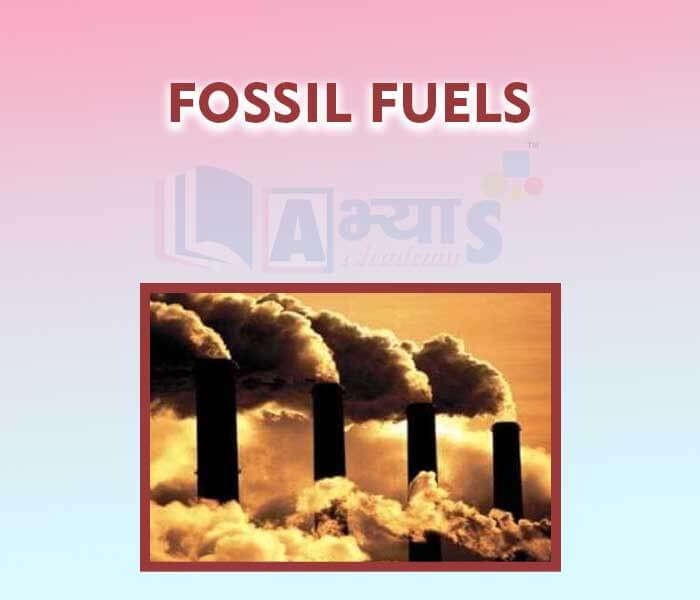Fossil Fuels


Fossil Fuels
Fossil fuels: Fossil fuels are formed from the buried remains of plants and animals over a period of millions of years. They produce large amount of energy on burning. Natural resources are divided into two types:
Advantages of Fossil Fuel:
Limitation of Fossil Fuels:
Inexhaustible renewable resourcs : Those natural resourcs which can be replenished or reproduced easily. For example, sunlight is a resource which will never run out as the sun is expected to last for another 5 billion years. Oxygen is renewable because it is replaced in the atmosphere as plants release oxygen during photosynthesis.
Many of the inexhaustible resources gets replenished with time quickly. But some of the inexhaustible resources are also depleting as they take longer time to replenish like ground water etc.
Exhaustible resources : Those natural resources that get replenished for mankind. For example sources like fossil fuels, top fertile layer of soil, minerals, forests etc.
Coal, Petreloum and natural gas: They are very important natural resources, and play a vital role in modern society. They are found in the earth's crust Their easy availability and specific characteristics make them very important in the growth of industry. At present they are the chief sources of energy worldwide.
Which of the following are correct : (a) Fossil fuels are cheap and reliable. (b) Fossil fuels undergo combustion to make the environment acidic. (c) Fossil fuels can damage the environment through human error. | |||
| Right Option : D | |||
| View Explanation | |||
Fossil Fuels are : | |||
| Right Option : A | |||
| View Explanation | |||
Crude oil is a fossil. Which one of the following is not a fossil fuel? | |||
| Right Option : C | |||
| View Explanation | |||
Students / Parents Reviews [10]
Being a parent, I saw my daughter improvement in her studies by seeing a good result in all day to day compititive exam TMO, NSO, IEO etc and as well as studies. I have got a fruitful result from my daughter.

Prisha Gupta
8thIt was a good experience with Abhyas Academy. I even faced problems in starting but slowly and steadily overcomed. Especially reasoning classes helped me a lot.

Cheshta
10thMy experience with Abhyas academy is very good. I did not think that my every subject coming here will be so strong. The main thing is that the online tests had made me learn here more things.

Hiya Gupta
8thIt has a great methodology. Students here can get analysis to their test quickly.We can learn easily through PPTs and the testing methods are good. We know that where we have to practice

Barkha Arora
10thAbhyas is a complete education Institute. Here extreme care is taken by teacher with the help of regular exam. Extra classes also conducted by the institute, if the student is weak.

Om Umang
10thIt was good as the experience because as we had come here we had been improved in a such envirnment created here.Extra is taught which is beneficial for future.

Eshan Arora
8thAbhyas Methodology is very good. It is based on according to student and each child manages accordingly to its properly. Methodology has improved the abilities of students to shine them in future.

Manish Kumar
10thOne of the best institutes to develope a child interest in studies.Provides SST and English knowledge also unlike other institutes. Teachers are co operative and friendly online tests andPPT develope practical knowledge also.

Aman Kumar Shrivastava
10thMy experience was very good with Abhyas academy. I am studying here from 6th class and I am satisfied by its results in my life. I improved a lot here ahead of school syllabus.

Ayan Ghosh
8thAbout Abhyas metholodology the teachers are very nice and hardworking toward students.The Centre Head Mrs Anu Sethi is also a brilliant teacher.Abhyas has taught me how to overcome problems and has always taken my doubts and suppoeted me.
